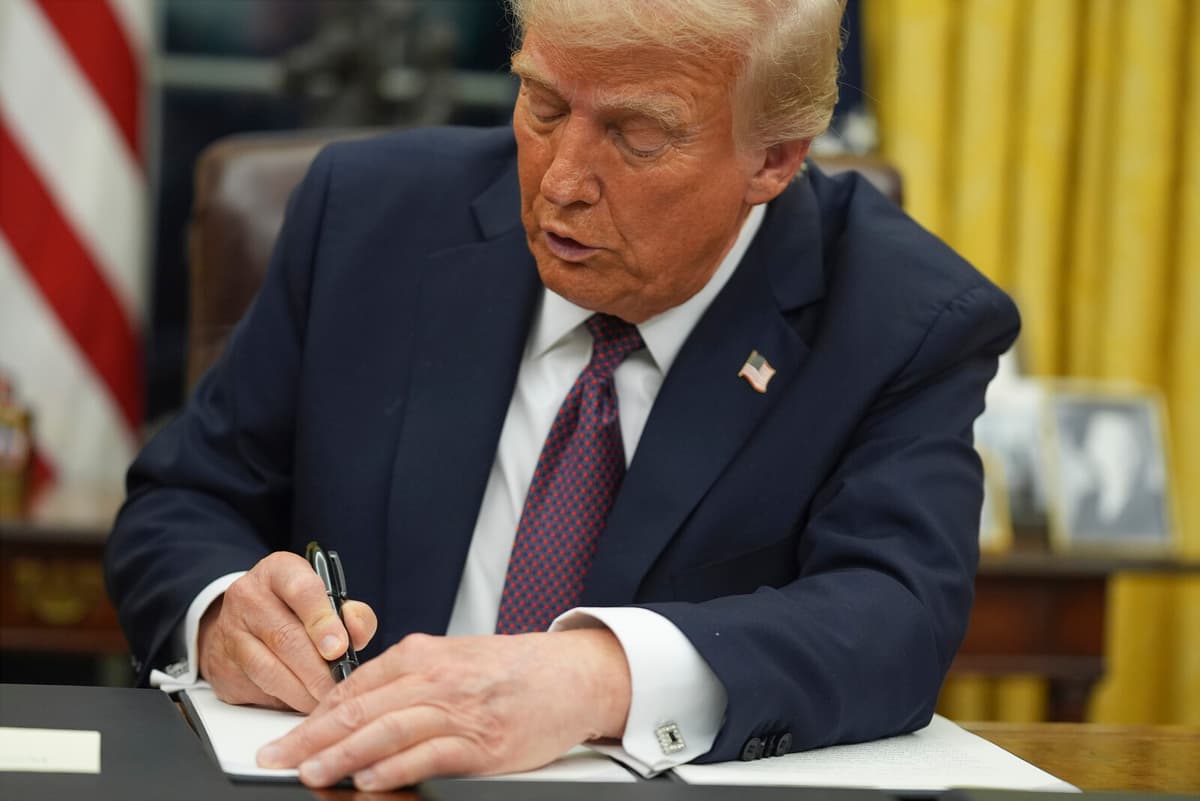Republican Trump had not been president for more than a few hours when he sat down at his desk and delivered on one of his key campaign promises: Without hesitation, he signed a prepared presidential decree that revoked the right to citizenship at birth for children of parents who do not legally reside in the USA.
This is big. This is good, said Trump in front of the cameras on January 20.
The decision was entirely in line with the tougher migration policy and mass deportations of undocumented immigrants he had promised during the election campaign. Trump has for years accused migrants from, among others, Mexico of being rapists who bring drugs and crime – and he has claimed that the law on citizenship at birth are exploited by undocumented immigrants who make sure to give birth in the USA.
Only plaintiffs?
The legal challenges came immediately in the form of lawsuits. After only a few days, the Trump decree was revoked by a federal judge in Maryland. Fellow judges in Massachusetts and Washington made similar decisions, citing that the right to citizenship at birth is constitutionally protected through the 14th Amendment.
The Trump administration appealed, but did not focus on the fundamental question – whether the decree is unconstitutional. Instead, they came up with another claim, namely that the court orders should not apply nationally, but only to the plaintiffs who were behind the original lawsuits. The White House thus wanted the decree to apply to everyone except those who filed the first lawsuits.
Three appellate courts rejected the request. It is therefore that the Trump administration has appealed to the Supreme Court. The Supreme Court takes up the question in the form of an "urgent appeal", which is unusual, it happens for the fourth time since 1971.
Powerful judges
Perhaps it happens in the light of recurring criticism against federal judges' influence on politics. Both Democrats and Republicans have questioned the power federal judges have when it comes to stopping or putting presidential decisions on hold.
If the Supreme Court goes along with Trump's line, it is not unthinkable that the decree will be challenged in court again. But then it will likely be about whether the wording follows the Constitution. Trump himself often emphasizes that the law was written shortly after slavery was abolished, to overturn an earlier Supreme Court decision that stated that blacks were not citizens but "in a separate class".
But now it is used by people who come into our country and suddenly become citizens. They pay a lot of money to cartels, said Trump recently.
The Supreme Court's decision is expected at the earliest in about a week.
The USA is one of 37 countries in the world that guarantees citizenship to individuals born within its borders.
The right is formulated in the Constitution's 14th Amendment, Section 1, which was ratified by Congress in 1868 – three years after the American Civil War had ended and slavery was abolished. Historically, the law aimed, among other things, to overturn an earlier Supreme Court decision from 1857, stating that blacks, free or slaves, were not citizens but "in another class".
In recent years, the years, the wording has been criticized for attracting so-called "birth tourism", that pregnant women travel to the USA to give birth there and give their children citizenship. The think tank Center for Immigration Studies estimates that women who were in the USA on tourist visas gave birth to around 33,000 children in 2020.
President Donald Trump believes that the law is being abused by undocumented immigrants. In the decree he signed in January, it states that citizenship should not be given to children whose father is not a citizen or otherwise legally resides in the country and/or whose mother resides illegally in the country or is in the USA on temporary work, student, and tourist visas.
Sources: Council on Foreign Relations, CNN, and others






